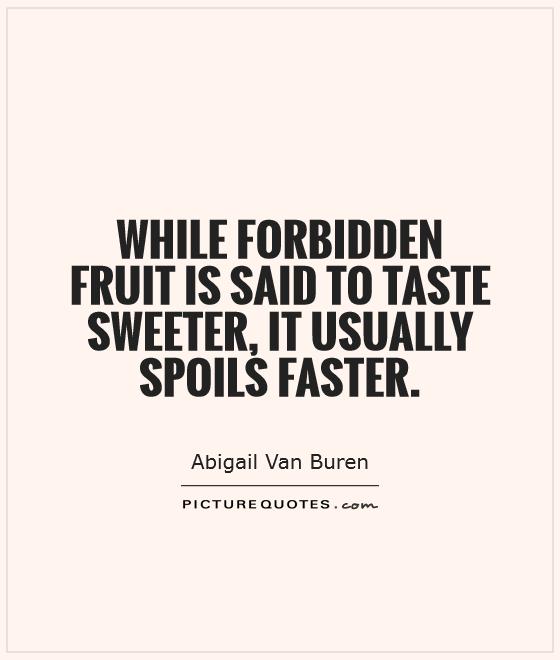While forbidden fruit is said to taste sweeter, it usually spoils faster

While forbidden fruit is said to taste sweeter, it usually spoils faster
Abigail Van Buren, also known as Dear Abby, was a renowned advice columnist who dispensed wisdom and guidance to millions of readers for decades. Her column was known for its straightforward and practical advice on a wide range of topics, from relationships to etiquette to personal growth. One of the recurring themes in her advice was the idea that while forbidden fruit may seem enticing, it often comes with consequences.The phrase "forbidden fruit is said to taste sweeter" is a common saying that suggests that things that are off-limits or taboo can be more appealing because of their forbidden nature. This can apply to many aspects of life, from relationships to career choices to personal indulgences. People are often drawn to things that are forbidden because they seem more exciting or desirable than what is readily available to them.
However, as Dear Abby often pointed out, the allure of forbidden fruit can be deceptive. While it may seem sweeter in the moment, it often comes with a price. Just as fruit that is forbidden may spoil faster, indulging in forbidden desires or actions can lead to negative consequences. This could include damage to relationships, harm to one's reputation, or even legal trouble.
Abigail Van Buren's advice often emphasized the importance of making wise choices and considering the long-term consequences of one's actions. She encouraged her readers to think carefully before giving in to temptation or pursuing something that was forbidden. While it may be tempting to indulge in forbidden fruit, it is important to consider whether the short-term pleasure is worth the potential long-term harm.












 Friendship Quotes
Friendship Quotes Love Quotes
Love Quotes Life Quotes
Life Quotes Funny Quotes
Funny Quotes Motivational Quotes
Motivational Quotes Inspirational Quotes
Inspirational Quotes